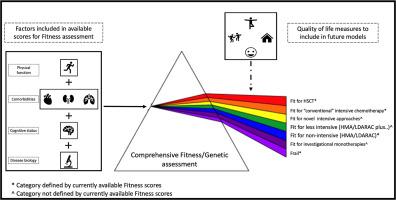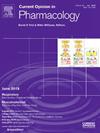Fitness in acute myeloid leukemia, state of the art and future directions
IF 4.2
3区 医学
Q1 PHARMACOLOGY & PHARMACY
引用次数: 0
Abstract
Acute Myeloid Leukemia (AML) is a complex disease whose outcome can be variably influenced by several clinical and biological factors. Although there is still no consensus on how to integrate these elements to best guide treatment choice, multiparametric models, commonly called fitness scores, have been developed to evaluate each patient's ability to tolerate therapies. These models consider various risk factors, including disease biology, comorbidities, physical and cognitive function. To date, several scoring systems can be used to categorize patients on their fitness for intensive or non-intensive therapies. However, existing tools mainly focus on identifying patients suitable for conventional intensive chemotherapy and fail to address the complexities of less-fit patients who might benefit from innovative intensive, less-intensive, and even maintenance strategies. As treatment landscapes are in constant evolution, identifying intermediate level of fitness through recalibration of existing scores or development of new ones should be prioritized. Considering all the above, this review aims to report on the state of the art of fitness assessment in AML and discuss possible future directions on this topic.

急性髓性白血病的适应性,现状和未来方向
急性髓性白血病(AML)是一种复杂的疾病,其预后可受多种临床和生物学因素的不同影响。尽管对于如何整合这些因素以最好地指导治疗选择仍然没有共识,但多参数模型,通常称为健康评分,已经开发出来评估每个患者耐受治疗的能力。这些模型考虑了各种风险因素,包括疾病生物学、合并症、身体和认知功能。迄今为止,有几种评分系统可用于对患者进行强化或非强化治疗的适应性分类。然而,现有的工具主要集中在确定适合常规强化化疗的患者,而未能解决不适合患者的复杂性,这些患者可能受益于创新的强化、低强度甚至维持策略。由于治疗景观是不断演变的,应优先通过重新校准现有评分或开发新评分来确定中等适应度水平。综上所述,本文旨在报告AML适应度评估的最新进展,并讨论该主题的未来发展方向。
本文章由计算机程序翻译,如有差异,请以英文原文为准。
求助全文
约1分钟内获得全文
求助全文
来源期刊
CiteScore
8.80
自引率
2.50%
发文量
131
审稿时长
4-8 weeks
期刊介绍:
Current Opinion in Pharmacology (COPHAR) publishes authoritative, comprehensive, and systematic reviews. COPHAR helps specialists keep up to date with a clear and readable synthesis on current advances in pharmacology and drug discovery. Expert authors annotate the most interesting papers from the expanding volume of information published today, saving valuable time and giving the reader insight on areas of importance.

 求助内容:
求助内容: 应助结果提醒方式:
应助结果提醒方式:


